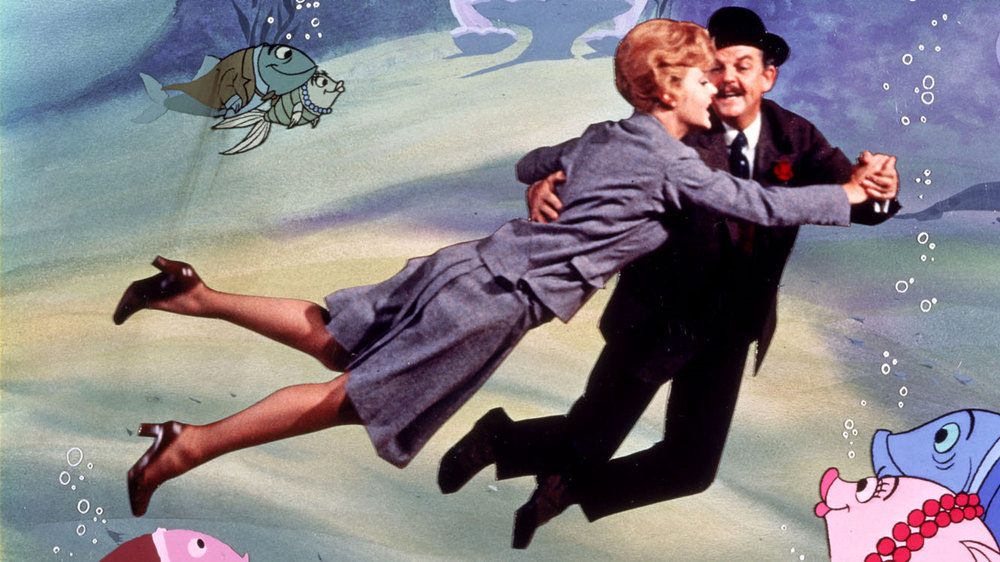“Prometheus” was arguably the biggest film of 2012, grossing more than $400 million and producing a buzz like no other film. It began as the fifth installment of the “Alien” series, but at some point director Ridley Scott said it took on a life of its own, with a separate mythology. It’s not another “Alien,” Scott insists, though he admits it “shares some of the same DNA.”
Actually, there’s quite a lot of “Alien” in “Prometheus” . . . and “Planet of the Apes” and “2001: A Space Odyssey” too. Like those iconic sci-fi films, “Prometheus” happily raises unsettling questions about human nature and the concept of the soul, as well as the origin of the species and humankind’s capacity for building things up and destroying them.
It’s been 33 years since the original “Alien” burst out of characters’ stomachs and spilled into the collective sci-fi consciousness, and co-star Noomi Rapace even dresses like Sigourney Weaver at times in this big-budget (shot entirely with 3D cameras) special effects film. One outfit in particular will fill your head with flashbacks of Weaver in action. But “Prometheus” flies into dark space both literally and figuratively.
Even if you follow the lead of the tantalizing title and read up on the mythical Prometheus, you’ll still be scratching your head in spots. There are no easy answers in this film, nor can you connect all the narrative dots. You can only theorize—though with thought-provoking films, that’s often satisfying enough. For others, it will simply be frustrating, because “Prometheus” is an open-ended film that raises questions it never answers.
In Greek mythology, Prometheus was one of the Titans—those pre-historical gods who ruled the world. He’s most known for stealing fire and giving it to humans—something for which Zeus sentenced him to be punished eternally by binding him to a rock so that birds could feast on his entrails. Then, because he’s an immortal, the birds would return the next day and the next to rip apart the newly regenerated organs. Prometheus and Sisyphus are the original martyrs, and the former is often associated with scientific discovery because his act contributed to a great leap forward for humankind.
In this film, Prometheus is the name of the spaceship that carries a team of researchers who are following a star map common to civilizations totally removed from one another, as if to suggest that the same star pattern primitive peoples worshipped on all corners of Earth might be the home of the Gods . . . or “The Engineers,” as archaeologists Elizabeth Shaw and Charlie Holloway label them. These are the beings whom Shaw and Holloway—who, by the way, are an item—think “engineered” the humans on Earth. That, of course, cleverly leaves the door open for creationism to peacefully coexist with scientific Darwinism, because as Shaw (Rapace) points out, no one knows who created the Engineers. Shaw is the ultimate believer, while Holloway (Logan Marshall-Green) is an atheist, a scientific skeptic.
They’re only pawns in a bigger scheme involving Weyland Corporation (yeah, it’s always a corporation; soon corporations, not corporate-leaning billionaires, will be running countries). Weyland is bankrolling the expedition, which includes a geologist (Sean Harris as Fifield), a biologist (Rafe Spall as Millburn), and a doctor (Kate Dickie as Ford). Overseeing it onboard is Weyland honcho Meredith Vickers (Charlize Theron), who clashes with the captain, Janek (Idris Elba). Weyland himself (Guy Pearce) appears as a hologram urging his team on.
They’ve used the star maps to calculate the precise location of where they believe the Engineers are based, and they seem anxious to “meet their maker.” Being scientists, of course, they don’t seem to have any knowledge of pop culture—especially the Western films that taught us all that to “meet your maker” means to DIE. Then again, if they did, there wouldn’t be a horror element to this sci-fi film, or a second-act crisis. I won’t give too much away, because a film like this depends upon surprise, but as the cover notes reveal, this team of scientists “travels to the darkest corners of the universe searching for the origins of human life. Instead they find a dark, twisted world that hides a terrifying threat capable of destroying them . . . and all mankind!”
Previously I’d only seen Rapace in the Swedish version of “The Girl with the Dragon Tattoo,” and she brings a softer side to her performance here that nonetheless draws upon her “Dragon Tattoo” experience in several key action scenes. She and Marshall-Green make for a believable couple, though Charlize Theron seems wasted as the Weyland exec in charge of the mission (and with not enough to do), and Harris and Spall are the throwaways used for comic relief before being fed to the plot muncher. But Michael Fassbender gets a meaty role as the android David, who alone pilots the ship while the rest sleep, ala “Planet of the Apes.” And the more that crew members bring up his inability to experience human emotion, the more you see a glimmer that fortifies what Jeff Goldblum’s character said in “Jurassic Park”: “Nature finds a way.” Even android nature. Creation can lead to some surprising results, and that’s yet another of the movie’s themes.
Artfully designed with special effects that border on the elegant—there’s no other way to put it—“Prometheus” is a visual delight. SPOILER ALERT: There’s just one segment that caused my 14-year-old son and I to look at each other and roll our eyes: when one of the characters ingests the same thing as an ancient man (Prometheus?) we see in the film’s prologue, but with different results that make no sense and remind you instead of Universal’s vintage “Wolf Man.” It was the only head-scratcher that was just plain dumb, rather than provocative. Other than that, the film invites viewers to consider the questions that the team of scientists sets out to investigate: Where did we come from? What is our purpose? What happens to us after we die? . . . and all this, in the context of science fiction.
On the one hand, it makes for the kind of richly textured movie that a director like Scott can sink his teeth into. On the other hand, by getting into metaphysics it will muddy the universe for people who like their science fiction straight up. So how does it compare to “Alien”? Well, at Rotten Tomatoes (and I’m one of the Tomatometer critics), the original 1979 film received a 97 percent “fresh” rating, while the sequel film critics generally agree is the equal to the original—“Aliens” (1986)—received a 100 “fresh” rating, meaning there wasn’t a single critic who thought the film was rotten. And “Prometheus”? It received a 74 percent “fresh” rating at Rotten Tomatoes, and roughly the same rating at the Internet Movie Database where more than 180,000 readers voted.
I can understand why. “Alien” stayed the sci-fi course, happy to let viewers believe that there are some things—like aliens and monsters, of which there are plenty here—that don’t need to be explained. To tie them to deep ontological questions the way that “Prometheus” does is to alienate some viewers. Still, it’s refreshing to come across a film that’s willing to tackle the big issues, even if, like old Walter Payton, it gives you the slip.
Video:
Wow. This is quite simply one of the most stunning video presentations on a Blu-ray this year. “Prometheus” was shot entirely with digital 3D cameras on location in Iceland, Scotland, England and Spain, and it’s easy to spot which scenes were conceptualized with 3D in mind and which objects will break the plane of the 3D-TV. Even on standard Blu-ray there’s a nice depth of field and the effects look jaw-dropping. In some of the cave scenes light grain turns to noise, but everything else is razor-sharp and the AVC/MPEG-4 transfer to a 50GB Blu-ray disc is flawless. Think “Avatar.”
Audio:
Get ready to rumble. A full-system English DTS-HD MA 7.1 Surround fills the room with non-directional sound that feels perfectly organic and has the kind of presence you’d expect with a blockbuster film like this. The sub gets fully involved and the rear speakers have something to say even in quieter scenes. They’re a constant factor in the audial experience, whether it’s room-shaking special effects or Marc Streitenfeld’s rich-toned orchestral score—one that’s somewhat reminiscent of the dramatic musical backdrop to “2001: A Space Odyssey.”
There are a ton of language options here, including French, Hindi, Portguese, Spanish, Tamil, Telugu, and Ukrainian Dolby Digital 5.1 and Russian DTS 5.1, with subtitles in English SDH, Spanish, Portuguese, Danish, Dutch, Estonian, Finnish, Latvian, Lithuanian, Norwegian, Russian, Swedish, and Ukrainian.
Extras:
I had requested a 3D screener because Movie Met’s Henning Molbaek said the 4-disc 3D version has the best bonus features, but Fox sent a Blu-ray instead. Oh well. It saves me three and a half hours, because the 3D version contains a LONG documentary directed by Charles de Lauzirka included on an extra disc of bonus features. So if you’re a big bonus features fan, this isn’t the edition to buy.
This edition comes with a second disc containing a DVD and Digital Copy, along with a code to access an UltraViolet copy of the film. Four Internet promos from “The Peter Weyland Files” try to situate the film in the context of “Alien,” while a collection of 14 deleted and extended scenes collectively runs a little over 36 minutes. Most support character development, but there are a few plot-related scenes that give you information you don’t get by watching the film, and some that give background on the Engineers. Of course, it doesn’t take a cynic to realize the obvious: that it probably won’t be a year before we see a Director’s Cut with scenes previously unseen ANYWHERE. The scenes come with optional commentary by editor Pietro Scalia and visual effects supervisor Richard Stammers. The best and one of the longest segments is “Arrival of the Engineers,” which has a very “2001” feel to it.
Two commentary tracks round out the bonus features, and if you’ve listened to Scott before, you know he likes to talk about his work. But I have to say that he has far more to say about his sci-fi films than he does about the others. They bring out an energy level in him that makes for a good viewer experience the second time around, except when he insists on doing play-by-play and telling us what we’re seeing. In terms of insights, we get the full range from him: casting, location filming, the “Alien” connection, the 3D challenge, and the film’s questions (not answers). The second commentary features writer-executive producer Damon Lindelof and writer John Spaihts whose remarks were recorded separately and then edited in. They talk more about the story than Scott does, so if you want to be teased into thinking you’re close to understanding the film, this is the track to listen to.
Bottom line:
The whole ontological angle might be a little much for some “Alien” fans, but “Prometheus” is a worthy (and appropriate) addition to that four-film saga—even if Scott insists it’s a stand-alone film. It’s one of the best looking and best sounding Blu-rays of 2012.


